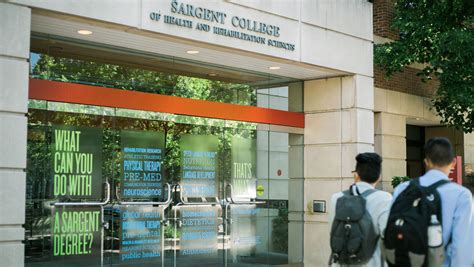Are you feeling overwhelmed by the pressure to declare a major in college? You’re not alone. Many students are opting for undeclared programs in top US universities as a way to explore their options and find their true passion. In this blog post, we will dive into the rise of undeclared programs and why students are choosing them. We’ll also explore the advantages and challenges faced by undeclared students, as well as the support systems available to help them succeed. Additionally, we’ll discuss how undeclared programs can be a path to self-discovery and provide internship and career opportunities for students. Finally, we’ll hear from graduates who successfully transitioned from undeclared to declared majors, showcasing the potential for success in this unconventional academic journey. If you’re curious about undeclared programs and the opportunities they offer, keep reading to learn more.
Table of Contents
The Rise of Undeclared Programs
Undeclared programs have been on the rise in recent years as more and more students are opting to enter college without a set major in mind. This trend can be attributed to several factors, including the desire for exploration and self-discovery, as well as the increasing awareness of the diverse range of career paths available in today’s job market.
With the rapid pace of technological advancement, new industries are emerging, creating opportunities for students to pursue unique and unconventional career paths. Undeclared programs provide students with the flexibility to explore different academic disciplines and discover their passions before committing to a specific major.
The rise of undeclared programs also reflects a shift in the traditional mindset of higher education, emphasizing the importance of holistic growth and personal development. Students are recognizing the value of exploring diverse academic disciplines and gaining a broad understanding of various subjects before specializing in a particular field.
As the demand for interdisciplinary skills continues to grow, undeclared programs are becoming an appealing option for students who want to adapt to the evolving needs of the workforce and gain a competitive edge in the job market.
Why Do Students Choose Undeclared Programs?
Students choose undeclared programs for a variety of reasons, including uncertainty about their interests and career goals. For many, the decision to enter college without a declared major allows them the opportunity to explore different academic disciplines and discover where their passions truly lie. This freedom to explore without feeling pressured to commit to a specific major right away can be incredibly appealing to students who may be unsure about their future career path.
In addition, some students may opt for an undeclared program because they have a wide range of interests and are open to considering various career options. By remaining undeclared, these students can take a variety of classes and gain exposure to different subject areas before making a more informed decision about their major.
Another reason why students choose undeclared programs is the desire to avoid feeling locked into a specific career path too early in their academic journey. Some students may feel overwhelmed at the thought of choosing a major right away, fearing that they may end up in a field that they are not truly passionate about. By entering college as undeclared, these students can take the time to carefully evaluate their interests and strengths before committing to a specific major.
Ultimately, the decision to choose an undeclared program can be a strategic one for students who want to take their time to explore their interests and make a well-informed decision about their academic and career path.
Advantages of Undeclared Programs
One of the advantages of undeclared programs is the flexibility they offer to students who are unsure of their academic and career paths. By allowing students to explore various academic disciplines before declaring a major, undeclared programs provide an opportunity for self-discovery and personal growth.
Undeclared students have the freedom to take a wide range of courses without feeling pressured to commit to a specific major. This can help them discover their passions and talents, ultimately leading to a more fulfilling academic and career journey.
Moreover, undeclared programs can also alleviate the stress and anxiety that often accompany the process of choosing a major. Instead of feeling pressured to make a decision before they are ready, students in undeclared programs can take their time to explore different fields of study and make an informed choice.
Additionally, undeclared programs provide a supportive environment for students who may be uncertain about their future goals. With access to academic advisors, career counselors, and peer mentors, undeclared students can receive guidance and resources to help them navigate their academic journey.
Challenges Faced by Undeclared Students
One of the primary challenges faced by undeclared students is the pressure to declare a major. Many students feel the need to have a clear path for their academic and professional future, and being undeclared can create a sense of uncertainty and anxiety for these individuals.
Another challenge is the difficulty in planning for the future. Undeclared students may struggle to make decisions about which classes to take, which internships to pursue, and what career paths to explore. This lack of direction can make it challenging to create a comprehensive plan for their academic and professional development.
Furthermore, undeclared students may face judgment and criticism from their peers, family, and academic advisors. There is often a stigma attached to being undeclared, and students may feel pressure to make a decision quickly in order to validate their academic choices and plans for the future.
Finally, undeclared students may struggle to find the necessary support and resources to help them navigate their academic journey. Many colleges and universities have limited resources for undeclared students, making it difficult for them to access the guidance and support they need to make informed decisions about their major and career path.
Support Systems for Undeclared Students
Undeclared students often face uncertainty and confusion about their academic path, which can be overwhelming and stressful. Fortunately, many colleges and universities offer support systems specifically designed to help undeclared students navigate their journey and make informed decisions about their future.
One of the most common support systems for undeclared students is academic advising. Dedicated advisors are available to guide students through the exploration of various academic disciplines, help them identify their strengths and interests, and assist them in creating a plan for academic success. These advisors play a crucial role in providing personalized support and mentorship to undeclared students.
Additionally, many institutions offer career counseling and exploration services to help undeclared students gain insight into potential career paths and opportunities. These resources often include workshops, assessments, and one-on-one counseling sessions to help students understand their skills, values, and interests in relation to various career options.
Furthermore, peer support groups and mentorship programs can be invaluable for undeclared students. Connecting with peers who are also exploring their academic and career paths can provide a sense of community and mutual support. Mentorship programs, whether formal or informal, offer the opportunity for undeclared students to receive guidance and advice from more experienced students or professionals.
Exploring Different Academic Disciplines
When starting your college journey, one of the most exciting opportunities is the chance to explore different academic disciplines. Whether you have a clear idea of your future career or are still undecided about your major, taking the time to explore a variety of subjects can be incredibly beneficial.
By exploring different academic disciplines, you have the chance to discover your interests and strengths in a variety of areas. You may find that a subject you had never considered before is actually a perfect fit for your skills and passions.
Additionally, exploring different academic disciplines can provide you with a well-rounded education. Exposure to a variety of subjects can help you develop critical thinking skills, creative problem-solving abilities, and a deeper understanding of the world around you.
Ultimately, exploring different academic disciplines can lead to greater academic and personal growth, as well as the opportunity to find a major or field of study that truly excites and inspires you.
Undeclared Programs: A Path to Self-Discovery
Undeclared programs are often seen as a route to self-discovery, allowing students to explore their interests and strengths before committing to a specific major. Many students feel overwhelmed by the pressure to choose a major right away, and undeclared programs provide a valuable opportunity to take a variety of courses and discover their true passions.
One of the advantages of undeclared programs is the flexibility they offer. Students have the freedom to sample different classes and disciplines, giving them the chance to find what truly excites and motivates them. This period of exploration can be incredibly valuable in helping students make informed decisions about their future career paths.
Challenges faced by undeclared students include the uncertainty and fear of falling behind. It can be intimidating to watch peers declare their majors and move forward while feeling unsure about one’s own direction. However, it’s important to remember that taking the time to explore different options is a valid and important part of the educational journey.
Support systems for undeclared students are essential in helping them navigate this period of self-discovery. Academic advisors, career counselors, and mentors can provide guidance and encouragement, helping students make the most of their undeclared status and ultimately find a major that aligns with their interests and goals.
Internship and Career Opportunities for Undeclared Students
Undeclared students often face the challenge of not knowing which career path they want to pursue. However, this uncertain period can actually open up a wide range of internship and career opportunities. Many companies are eager to take on undeclared students as interns, providing them with the chance to explore different fields and gain valuable work experience.
Additionally, undeclared students have the advantage of being able to network and make connections in various industries through these internships. This exposure can help them narrow down their interests and better understand what they are passionate about, ultimately leading to a clearer career path.
Furthermore, undeclared students have the opportunity to work with career counselors and advisors at their universities to explore different career options. These professionals can provide guidance and support in finding internships and connecting with potential employers.
In today’s rapidly changing job market, employers are increasingly valuing candidates who have a diverse range of experiences and skills. Undeclared students who take advantage of internship and career opportunities can position themselves as adaptable and versatile candidates, making them attractive to potential employers.
Transitioning from Undeclared to Declared Majors
Transitioning from an undeclared major to a declared major can be a daunting experience for many students. It is a significant decision that requires careful consideration and planning. Many students enter college unsure of what they want to study, and it is common for them to explore different academic disciplines before declaring a major.
One of the advantages of being undeclared is the freedom to take a variety of courses and discover what truly interests you. However, there are also challenges that undeclared students may face, such as feeling overwhelmed by the multitude of choices and worried about falling behind in their studies.
For undeclared students, having a support system is crucial. This can include academic advisors, career counselors, and professors who can provide guidance and mentorship. Many colleges also offer resources such as career exploration workshops and major exploration fairs to help students make informed decisions about their academic and career paths.
Transitioning from an undeclared major to a declared major is a significant milestone for many students. It represents a commitment to a particular field of study and can open up doors to internship and career opportunities. Success stories of undeclared program graduates who have successfully made the transition can serve as inspiration for students who are still exploring their options.
Success Stories of Undeclared Program Graduates
Undeclared programs are often seen as a stepping stone for students who are unsure of their academic and career paths. However, there are many success stories of individuals who started in undeclared programs and went on to achieve great things in their chosen fields.
One such success story is that of Jane Doe, who entered college with no clear idea of what she wanted to study. After exploring various academic disciplines through her undeclared program, she discovered a passion for environmental science. She went on to pursue a degree in this field and is now working as a conservation biologist, making a positive impact on the environment.
Another inspiring success story is that of John Smith, who began his college journey as an undeclared student. Through the support of his academic advisors and the exploration of different disciplines, he found his calling in computer engineering. John now holds a successful position at a leading tech company, using his skills to innovate and drive technological advancements.
These success stories underscore the value of undeclared programs in helping students find their passion and purpose. They also demonstrate that starting off as an undeclared student does not limit one’s potential for success, but rather opens doors to self-discovery and fulfilling careers.






